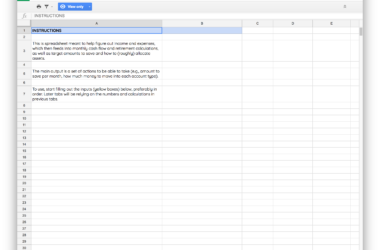I’ve done my fair share of productivity evangelism over the years. Heck, only a few months ago, I espoused the virtues of establishing personalized workflows; not necessarily because they’re universal panaceas to overwhelming information, but more because having a set of tools available is still better than consuming unbounded information firehoses.
It’s news to me, then, that Getting Things Done (GTD) is over:
The Rise and Fall of Getting Things Done
Okay, the title is more clickbait than thesis. The premise of the article is that one of the original proponents of the Getting Things Done framework—the guy behind 43 Folders, an old blog about productivity through software and processes—chased the productivity dragon for years to the point of burning out, and gave up on the movement he helped start to pursue other interests. Mind you, the original creator of GTD seems to be still going strong, at least in terms of cashing in on books and seminars.
That said, the article’s author does eventually provide thoughtful commentary: with work enveloping more and more of our waking lives1, framing solutions around the individual worker by directing the responsibility to the afflicted is cynical and ultimately ineffective. The deficiency here isn’t that workers don’t know how to manage their work; it’s that organizations have been demanding too much to begin with. It’s on management to set and enforce boundaries of reasonable amounts of work.
I do think that last point—on the managers’ roles to define sustainability for their workers—to be pertinent, particularly in these COVID times. Long gone are the unexpected boosts of productivity from earlier in the pandemic; the worry has been, for some time, the risk of massive burnout across both employees and their managers. Tautologically, having managers scale back workload expectations decreases the amount of work and therefore reduces the need for employing productivity frameworks, but cruelly, this is not universally available; the workplaces who can afford to cut their employees some slack are precisely those who are further removed from the effects of the virus, be it remote workers or industries that benefit from viral mitigation efforts.
But it seems a pendulum swing too far to discredit productivity systems overall, even if it cannot truly scale to untenable workloads. Even excluding the demands of work, modern life is pretty demanding, between paying bills and handling finances and kids’ classes and health checkups and car maintenance appointments and everything else that needs get processed and eventually done. Perhaps the same commentary applies to how living itself has evolved to the same magnitudes of complexity and stress as work, but there’s no single entity to easily place blame; we all just have a lot going on. In this context, any strategies available to alleviate the cognitive load2 is welcome.
Not to mention that we’re getting worse at managing that amount of awake, i.e., less sleep and rest.↩
The author does suggest several software project management practices—Kanban boards and Scrum triages and don’t-call-it-agile systems to help. Having developed software with these systems professionally for 1½ decades now, I’m more skeptical than most of their efficacy.↩




